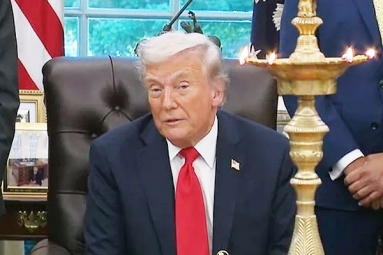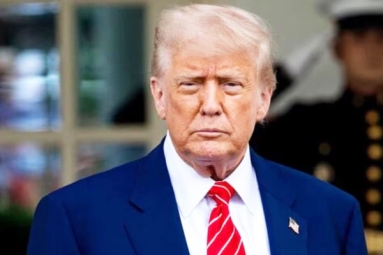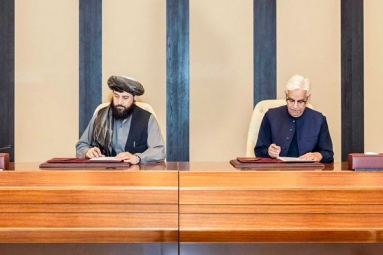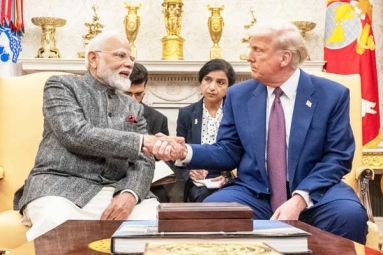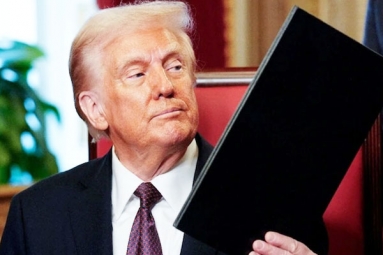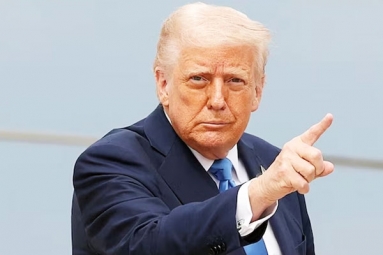Tariffs on India vital for Ukraine peace: Trump's Administration
September 04, 2025 16:14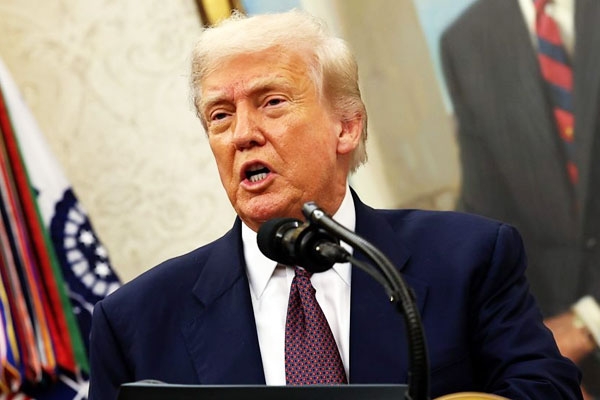
(Image source from: Bbc.com)
US President Donald Trump's administration informed the court in documents that getting rid of tariffs on nations such as India could lead to trade retaliations and hinder international peace efforts. In a plea to the US Supreme Court, which India Today reviewed, Solicitor General John Sauer asked the judges to keep the tariffs, which a lower court deemed illegal. The document stated, “The consequences of this case are extremely significant,” labeling tariffs as “essential to our efforts for peace” in Ukraine and a protection against economic disaster. “We recently imposed tariffs on India for buying Russian energy products to address a prior national emergency related to Russia's war in Ukraine,” the administration noted, stating that lifting these tariffs “would push America close to an economic disaster.”
In line with Trump's wider actions against various nations, the US government lately applied a 25 percent tariff on India, pointing out the trade deficit, along with an extra 25 percent due to India not complying with US demands to stop its oil trade. The total tax now reaches 50 percent. Trump's emergency request to the Supreme Court follows a 7-4 ruling by the US Court of Appeals for the Federal Circuit, which decided that Trump acted beyond his powers by using emergency economic measures to impose extensive duties. The administration responded that these actions encourage “peace and significant economic growth” while urging nations to form new trade agreements with the US.
“The United States is wealthy with tariffs; without them, it’s poor,” the document said. It claimed that removing tariffs would weaken the country’s defense industry, threaten USD 1.2 trillion in yearly trade deficits, and create “uncertainty in ongoing international negotiations.” The government explained that due to the tariffs, “six significant trading partners and the 27-nation European Union have already engaged in framework agreements,” enhancing America's global standing. “One year ago, the United States was in a poor situation, and now, thanks to the trillions of dollars received from countries that have treated us poorly, America has become a strong, financially stable, and well-respected nation again,” the document stated.
The Trump administration asked the judges to promptly decide that the president has the power under federal law to impose broad import taxes, contesting an appeals court ruling that found most of President Trump’s tariffs as an illegal use of emergency powers. Most judges in the appeals court determined that the 1977 International Emergency Economic Powers Act does not allow the president to bypass Congress's power to set tariffs. However, dissenting judges argued that the law permits the president to manage imports during emergencies without clear limits. Alongside India, the Trump administration has imposed large tariffs on multiple countries due to trade imbalances, failure to reduce the influx of certain goods to the US, and various other issues. While some nations have since made trade agreements with the US, others have faced stalled negotiations, and some tariffs have already taken effect.
India was working closely with the United States to reach a trade agreement; nevertheless, discussions have seemingly come to a halt lately because India is still trading with Russia and is not willing to completely allow the US into its agriculture and dairy sectors.



